About Sunrise Sober Living
Sunrise Sober Living is a residential addiction treatment facility in Murfreesboro, Tennessee. This facility provides a smooth transition for men who have been discharged from drug rehab but still don’t feel ready to enter life outside the recovery setting. Their residential program offers a variety of therapy options and community support.
The state’s geographic center, Murfreesboro, Tennessee is home to Sunrise Sober Living. This men’s transitional living home provides a safe, secure space to continue your addiction recovery journey. You’ll benefit from a balance between structure and support to stay on the path of sobriety.
You can access a tight-knit, home-like environment to hone in recovery away from distractions and triggers. Their program emphasizes 12 step immersion and building vital life skills to advance in recovery. You’ll follow rules and guidelines to actively contribute to your peer community and work toward your recovery goals. They strive to help you gain accountability and build a healthy routine to support your journey.
For me, their educational and employment services really stood out. They understand that gaining an education and finding a job are vital factors in recovery success. You can also access budgeting assistance to ensure you can manage your finances. That way you’ll leave their program with the tools to promote long-term recovery.
Another great feature that caught my eye was their emphasis on peer support. You’ll live among peers on similar paths, working together to grow and maintain recovery. You can participate in group discussions to share your personal experiences and learn from others. They also encourage participation in community events. These activities can offer emotional support while enhancing accountability.
Lastly, their program length is beneficial. They understand that recovery looks different for everyone. That said, you can stay in their program for as long as you want. I think this is great because you can move at your own pace and have ongoing support as you rebuild your life.
Facility Overview
Rehab Score
Gallery
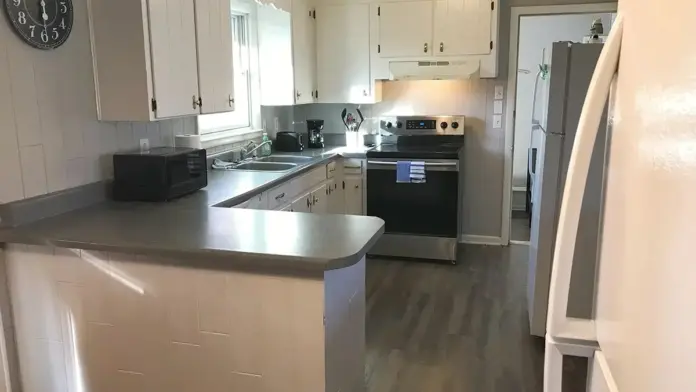
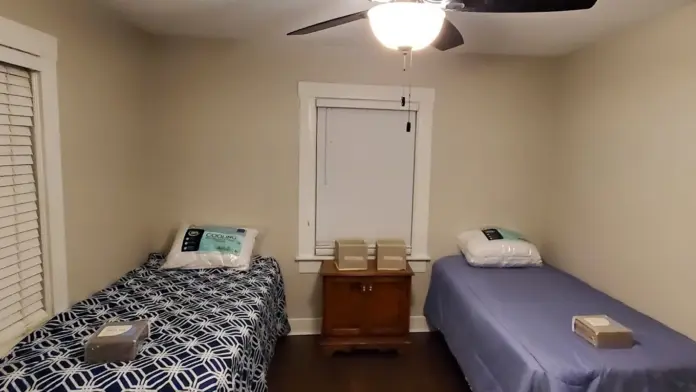
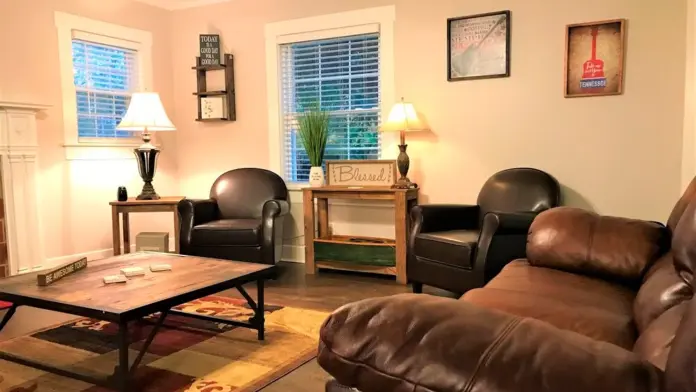
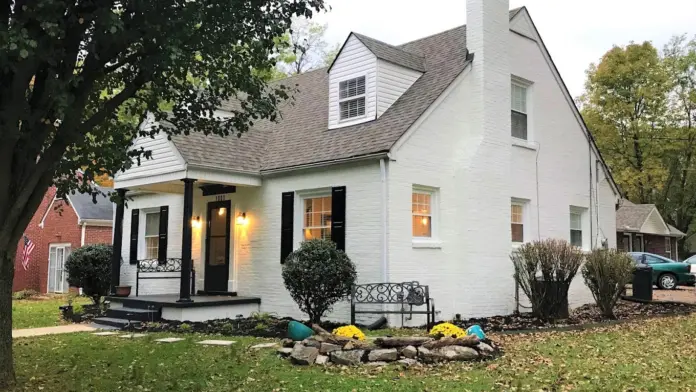
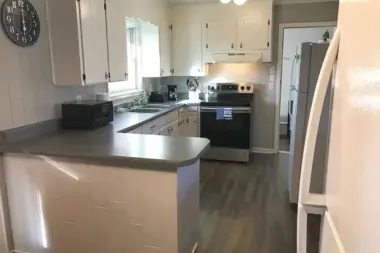
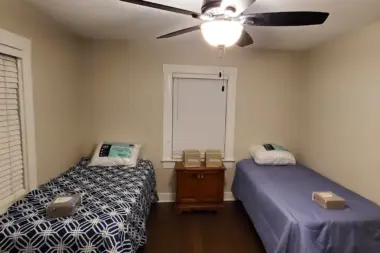
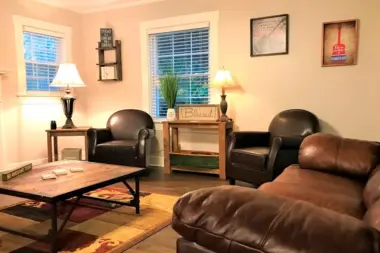
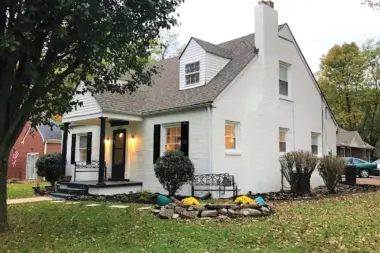
Other Forms of Payment
Self-pay involves paying for treatment out of your own pocket. You can use savings or credit, get a personal loan, or receive help from family and friends to fund your treatment. If you don't have insurance or your insurance plan doesn't cover a specific program, self-pay can help ensure you still get the care you need.
Addiction Treatments
Levels of Care
12-step programs are addiction recovery models based on Alcoholics Anonymous (AA). A number of substance abuse programs (including some drug and alcohol rehab centers) use the 12 steps as a basis for treatment. Beginning steps involve admitting powerlessness over the addiction and creating a spiritual basis for recovery. Middle steps including making direct amends to those who've been hurt by the addiction, and the final step is to assist others in addiction recovery in the same way. 12-Step offshoots including Narcotics Anonymous (NA), Cocaine Anonymous (CA), Dual Recovery Anonymous (DRA), Sex and Love Addicts Anonymous (SLAA) and Gamblers Anonymous (GA).
Sober Living Houses (SLHs), aka sober homes or halfway houses, are safe, substance-free, supportive living facilities for those recovering from substance abuse. Ideal for those who've just been through inpatient or outpatient treatment, SLHs are supervised environments with rules that support sobriety, such as curfews, shared chores, and therapeutic meetings. Residents are also often trained on life skills and coping skills to make it easier to transition into society. SLHs also provide a strong sense of community that can lead to the kind of deep and lasting connections with other sober individuals that supports a new, healthy lifestyle.
Drug and alcohol addiction often takes a heavy toll on one’s body. Over time, a physical dependence can develop, meaning the body physiologically needs the substance to function. Detox is the process of removing drugs and/or alcohol from the body, a process that can be lethal if mismanaged. Medical detox is done by licensed medical professionals who monitor vital signs and keep you safe, healthy, and as comfortable as possible as you go through detox and withdrawal.
Outpatient rehabs enable clients to receive care without leaving their home, workplace, and community. Clients typically receive intensive addiction counseling, including individual, group, and family therapy. Many programs promote clients' long-term sobriety through recovery-focused life skills training and ancillary services, such as peer coaching. Medication assisted treatment (MAT), including medication induction and maintenance, are common in outpatient care. Most facilities offer multiple levels of care to accommodate clients' evolving needs, including intensive outpatient (IOP) and standard outpatient programming.
Inpatient rehabs are designed principally for clients who require intensive supervision and support, including clients who have just completed detox, clients in early recovery, and clients at an elevated risk of relapse. Inpatient treatment helps clients stabilize following detox and prepares them to step-down into outpatient and/or community-based care. Clients reside at the facility for the duration of their program and engage in extensive addiction counseling and education. Many programs also offer evidence-based complementary therapies.
Programs
Adult rehab programs include therapies tailored to each client's specific needs, goals, and recovery progress. They are tailored to the specific challenges adult clients may face, including family and work pressures and commitments. From inpatient and residential treatment to various levels of outpatient services, there are many options available. Some facilities also help adults work through co-occurring conditions, like anxiety, that can accompany addiction.
Clinical Services
Life skills training teaches you how to cope with challenging situations in non destructive ways. This crucial piece of drug rehab in Tennessee gives you tools for decision making, relationship building, and self care.
In Tennessee, group therapy sessions for drug and alcohol addiction typically involve skill development to help you learn communication techniques and relapse prevention strategies. These strategies support your transition into the community and help you maintain long term sobriety.
Amenities
-
Private Rooms
-
Hiking
Contact Information
1021 Ewing Blvd
Murfreesboro, TN 37130